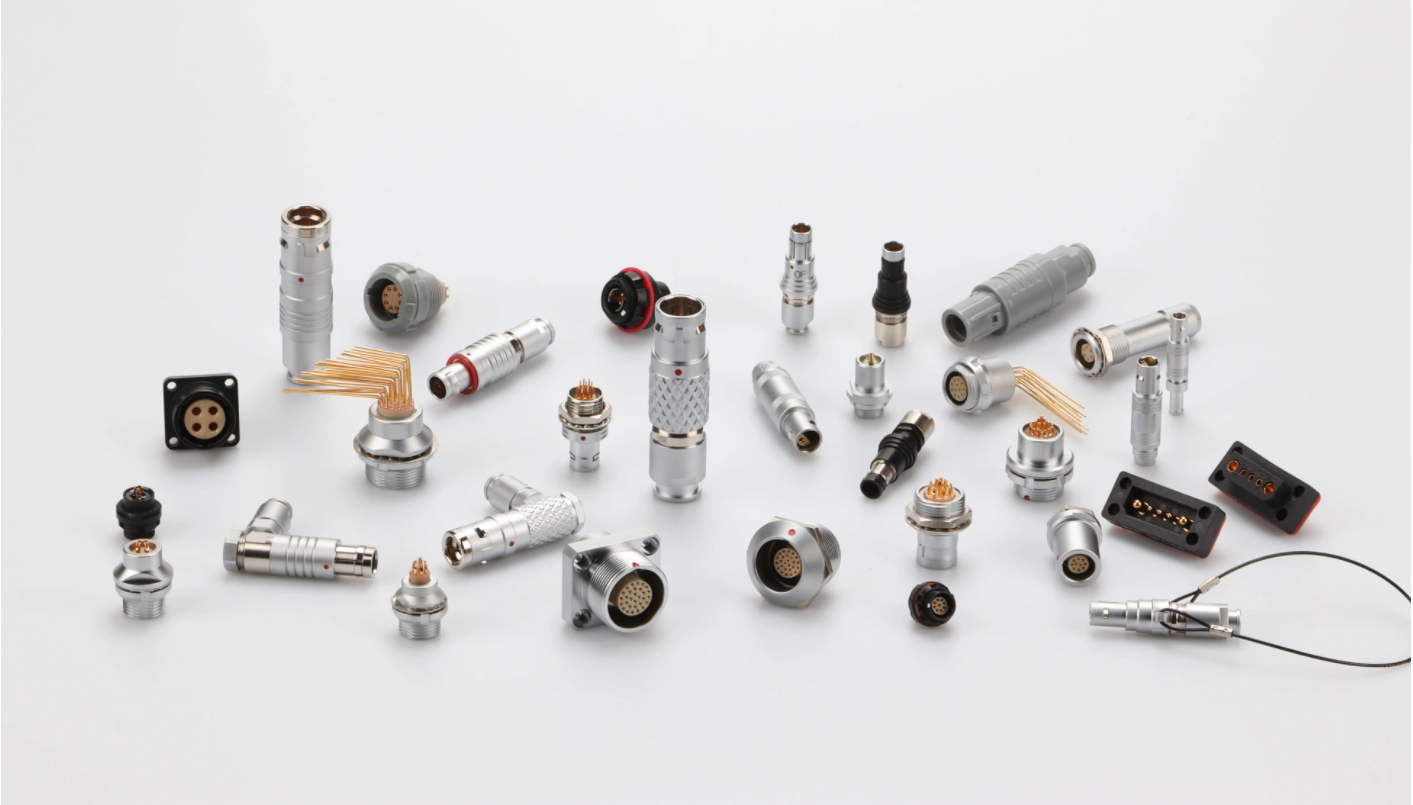Electrical connectors play a crucial role in establishing and maintaining electrical connection types within various systems. Whether you are a professional electrician or an enthusiast working on a DIY project, understanding different electrical connector types is essential. Want to know what are the different types of electrical connectors? This comprehensive guide explores the various types of electrical connectors available in the market, their features, and how to select the right connector for your specific requirements.
Electrical connectors come in a wide range of shapes, sizes, and designs, each with its specific features and purposes. Let's explore some commonly used electrical connector types:
The pin connector, also known as the male connector, features a cylindrical shape with a series of pins aligned in a specific configuration. These pins, usually made of metal, facilitate the transfer of electrical signals or power between different devices. Types of electrical pins are highly versatile and can be found in various applications, including computers, audio and video equipment, and automotive systems.
The socket connectors, often referred to as female connectors, are designed to interface with their corresponding pin connectors. These connectors feature hollow cylindrical shapes with holes that align with the pins in male connectors. The socket connectors act as receptacles, allowing the pins to be inserted and establish an electrical connection. Like pin connector types, socket connectors are widely used in a diverse range of devices.
The barrel connector is a jack-and-plug style connector commonly found in DC power applications. It is cylindrical in shape, with a male plug on one end and a corresponding female jack on the other. Barrel connectors are frequently used in consumer electronics, such as laptop chargers, power supplies, and audio devices. They provide a simple and convenient method for connecting and disconnecting power sources.
Electrical connectors possess various features that contribute to their functionality and usability. Here are some essential features to familiarize yourself with:
The conductor material used in electrical connectors impacts their conductivity, durability, and resistance to environmental factors. Common conductor materials include copper, aluminum, and gold-plated contacts. Copper is widely used due to its excellent conductivity, while gold-plated connectors offer enhanced resistance to corrosion.
2. Connector Size and Shape:
Electronic connector types come in various sizes and shapes to accommodate different applications. Miniature connectors are commonly employed in compact electronics, while larger connectors are suitable for industrial applications. Consider the available space and the connector's compatibility with other mating connectors while selecting the right size and shape.

3. Insulation and Housing:
Connectors often feature insulation and housing materials, such as plastic or rubber, to protect the conductors and prevent electrical shorts. The choice of insulation and housing should consider factors like temperature resistance, durability, and electrical insulation properties.
Electrical connectors have specific voltage and current ratings, indicating the maximum voltage and current they can handle safely. It is crucial to choose connectors with ratings compatible with your electrical system requirements to avoid electrical failures, overheating, or other hazardous situations.
Selecting the appropriate electrical connector requires careful consideration of several factors. Here are some key aspects to keep in mind when choosing an electrical connector:
Identify the specific needs of your application, such as signal transmission, power delivery, or environmental conditions. Different applications may require connectors with varying levels of insulation, shielding, or sealing against dust and moisture.
Ensure the connector you choose is compatible with the mating connector or device. Consider factors like pin and socket configurations, contact layout, and gender compatibility to establish a secure and reliable connection.
Evaluate the environmental conditions in which the connector will operate. Factors like temperature extremes, moisture, vibration, and exposure to chemicals or UV radiation can impact the connector's performance and lifespan. Choosing connectors with appropriate IP (Ingress Protection) ratings can ensure their suitability for specific environments.
Proper installation and maintenance of electrical connectors are essential for their performance and longevity. Follow these guidelines for optimal connector functionality:
Fasten the connectors firmly to prevent any accidental disconnections due to vibrations or mechanical stress. However, avoid over-tightening, as it may damage delicate pins or connectors.
When connecting electrical connectors, ensure the pins and sockets align correctly, and the orientation is appropriate. Misalignment or improper orientation can damage the pins or result in a poor electrical connection.
Inspect connectors periodically for signs of damage, corrosion, or debris accumulation. Clean connectors, if necessary, using appropriate solvents or contact cleaners. Regular maintenance ensures reliable connections and prolonged connector lifespan.
Always refer to the electrical connector manufacturers' instructions for specific connector installation and maintenance procedures. Manufacturers often provide detailed guidelines to prevent common issues and optimize connector performance.
You have a few options for buying electrical connectors:
Local Hardware Stores:
They are convenient for immediate needs and often have knowledgeable staff.
Electronics Stores:
Stores specializing in electronics components or specialized local electronics shops, may have a wider selection of connectors suitable for specific electronic applications.
Online Retailers:
Websites such as Amazon, eBay offer extensive catalogs and convenient shopping. They often provide detailed specifications and customer reviews.
Electrical Supply Stores:
Electrical connector manufacturers, such as Moco Connectors, that cater specifically to electrical contractors and professionals may have a broader range of industrial-grade connectors and bulk purchasing options.
Specialty Stores:
Depending on your location and specific needs, there might be specialty stores focusing on renewable energy, marine electronics, or other niche markets that carry specialized connectors.
Before purchasing, make sure to check the specifications of the connectors to ensure they match your requirements in terms of size, voltage rating, current capacity, and environmental conditions (e.g., moisture resistance if used outdoors).
Understanding different electrical connectors types is vital for anyone working with electrical systems. By familiarizing yourself with the various connector designs, features, and their applications, you can make informed decisions when selecting and using electrical connectors. Remember to assess your application requirements, select compatible connectors, and ensure proper installation and maintenance to ensure reliable and safe electrical connections.